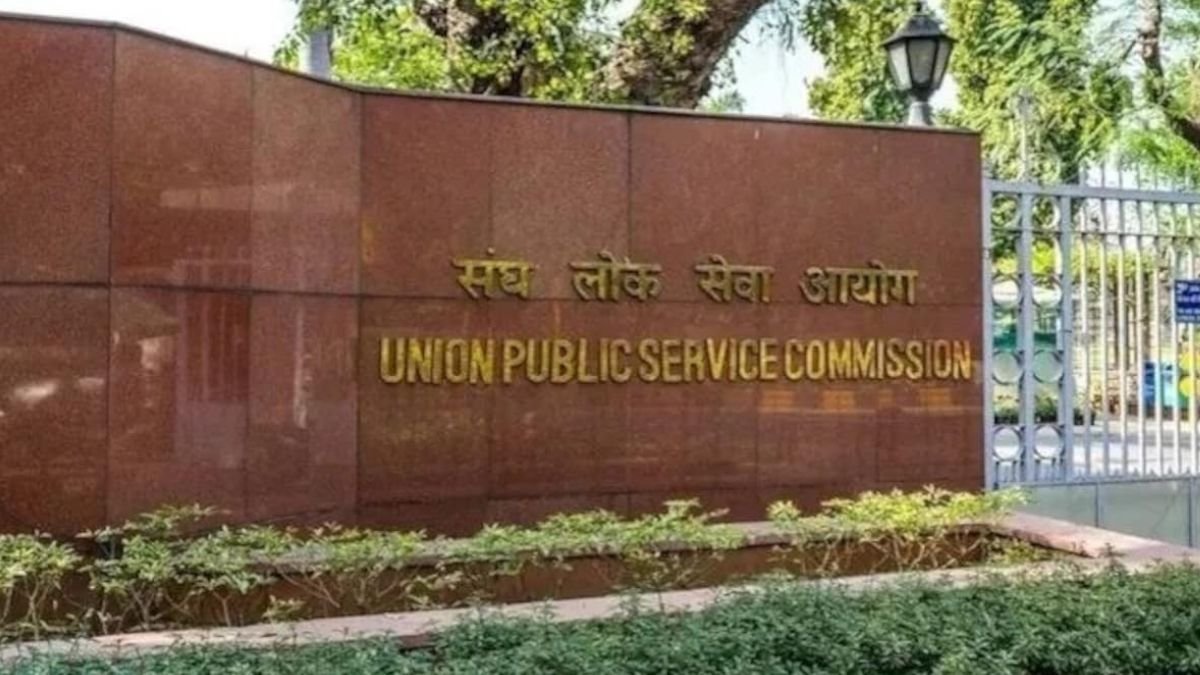Why in the News?
- The Union Public Service Commission (UPSC) marked 100 years of its establishment on October 1, 2025.
- It has been a guardian of meritocracy and an institution ensuring fairness, integrity and trust in India’s civil services recruitment system.
Key Highlights
- What is UPSC and why does it matter?
- The idea of an independent Public Service Commission emerged with the Government of India Act, 1919, and materialised in 1926 following the Lee Commission (1924)
- Initially set up as the Public Service Commission, it evolved into the Federal Public Service Commission under the Government of India Act, 1935, and finally became the Union Public Service Commission in 1950 with the adoption of the Constitution.
- Article 315 establishes UPSC and State PSCs.
- Today, UPSC is the premier recruitment body for diverse services including Civil, Engineering, Forest, Medical, and Statistical Services, ensuring merit-based selection.
- The Foundation and Pillars of UPSC
- Trust: Built over decades through transparent procedures, impartial evaluation, and strong safeguards against malpractice.
- Integrity: Maintained by protecting UPSC from political influence, ensuring confidentiality, and upholding independence.
- Fairness: Equal opportunity to candidates across geographies, socio-economic backgrounds, and languages, making it a true level playing field.
- Inspired by the Bhagavad Gita’s principle of duty without attachment, UPSC conducts its role with rigour, fairness, and neutrality.
- The ‘Indian Dream’ and Aspirants’ Diversity
- Once dominated by urban elite candidates, the UPSC examination today attracts aspirants from remote districts and underprivileged backgrounds, showcasing the democratisation of opportunity.
- Nearly 10–12 lakh candidates apply annually for prelims, out of which a select group progresses to mains and interviews.
- Examinations are conducted in 22 constitutional languages and 48 optional subjects, evaluated anonymously, ensuring fairness.
- The logistical scale includes 2,500+ prelims venues, meticulous management of subject-wise mains papers, and special facilities for differently-abled candidates.
- The Role of Unsung Heroes
- Paper-setters, evaluators, and academic experts across 48 disciplines form the backbone of UPSC.
- They ensure accuracy, confidentiality, and fairness in evaluation, while remaining anonymous and selfless in their contribution.
- Their work has ensured continuity even during disruptions like the COVID-19 pandemic.
- UPSC’s Contribution to Nation-Building
- Civil servants recruited by UPSC have:
- Managed crises, reforms, and public administration.
- Handled challenges in economy, environment, infrastructure and security.
- Civil servants recruited by UPSC have:
- Served as the invisible hand of governance, touching the lives of every citizen.
- Reforms and the Road Ahead
- UPSC has adopted digital reforms including an online application portal and face-recognition technology to prevent impersonation.
- PRATIBHA Setu initiative: Provides opportunities for candidates who reach the interview stage but don’t make the final list. It Connects them to other government/PSU/private opportunities.
- Plans to incorporate AI and digital technologies for efficiency without compromising integrity and transparency.
- Reforms aim to keep UPSC relevant in the face of global competition and technological disruptions.
| Lee Commission (1924)
1. The Lee Commission was appointed by the British Government of India in 1923 under the chairmanship of Lord Lee of Fareham. 2. Its primary objective was to review and report on the composition and recruitment of the superior Civil Services in India. 3. It recommended that Indians should be given a larger share in the higher civil services, gradually reducing British dominance. 4. Suggested that 40% of superior posts should be reserved for Indians immediately, and the proportion should be increased over time. 5. The Commission strongly emphasized that a professional and impartial civil service, free from political influence, was essential for efficient administration. |
Implications
- Strengthening Meritocracy: Ensures civil services remain a neutral and competent instrument of governance, free from external influences.
- Democratisation of Opportunity: Wider participation from rural, regional, and marginalised backgrounds creates a more representative bureaucracy.
- Nation-Building Role: UPSC-trained officers drive policy implementation, crisis management, reforms, and development.
- Institutional Trust and Legitimacy: UPSC stands as a symbol of fairness and impartiality, strengthening public confidence in governance.
- Technological Modernisation: Use of AI, digital tools, and PRATIBHA Setu demonstrates adaptability to future governance challenges.
Challenges and Way Forward
| Challenges | Way Forward (Solution addressing the challenge) |
| 1. Increasing scale and complexity of UPSC examinations – with lakhs of candidates, 48 optional subjects, and 22 languages, logistics are highly demanding. | Adopt advanced digital technologies such as AI-based scheduling, automated logistics, and secure e-governance platforms to streamline large-scale examination management. |
| 2. Rising risk of impersonation and malpractice due to technological misuse. | Strengthen digital security measures such as biometric/face-recognition verification, encrypted exam systems, and enhanced cyber monitoring to maintain integrity. |
| 3. Political or external influence pressures that may undermine institutional independence. | Reinforce constitutional safeguards under Article 315 and promote transparency in functioning, ensuring UPSC’s autonomy from external interference. |
| 4. Growing expectations from diverse aspirants – rural, differently-abled, and linguistic minorities often face accessibility gaps. | Expand inclusivity measures such as regional support centres, enhanced facilities for differently-abled candidates, and increased availability of preparatory material in multiple languages. |
| 5. Changing nature of governance and administration – emerging global challenges like AI, climate change, cyber governance require new skills. | Reform exam patterns and syllabi to incorporate contemporary governance skills such as data analytics, environmental governance, technology ethics, and global policy. |
Conclusion
The centenary of UPSC is not only a celebration of history but also a reminder of the institution’s enduring values of merit, fairness, and integrity. As India steps into a complex global future, the UPSC must continue to adapt, innovate, and uphold its role as the guardian of meritocracy in public service.
| EnsureIAS Mains Question
Q. UPSC at 100 is not merely a milestone but a reflection of India’s commitment to meritocracy and integrity in governance. Discuss the role played by UPSC in ensuring a fair and representative civil services system, and suggest reforms to strengthen it further. (250 Words) |
| EnsureIAS Prelims Question
Q. Consider the following statements regarding the Union Public Service Commission (UPSC): 1. The UPSC was first set up in 1926 on the recommendations of the Lee Commission. 2. The Government of India Act, 1935 gave it the status of Federal Public Service Commission. 3. The UPSC conducts recruitment only for the All India Services. 4. The UPSC enjoys constitutional status under Article 315 of the Indian Constitution. Which of the above statements are correct? Answer: (a) 1, 2 and 4 only Statement 1 is correct: UPSC was first established in 1926 following the Lee Commission’s recommendations. Statement 2 is correct: The 1935 Act elevated it to the Federal Public Service Commission. Statement 3 is incorrect: UPSC recruits not just for All India Services but also Central Services and other cadres. Statement 4 is correct: Article 315 gives constitutional status to UPSC. |
|
Also Read |
|
| UPSC Foundation Course | UPSC Daily Current Affairs |
| UPSC Monthly Magazine | CSAT Foundation Course |
| Free MCQs for UPSC Prelims | UPSC Test Series |
| ENSURE IAS NOTES | Our Booklist |




